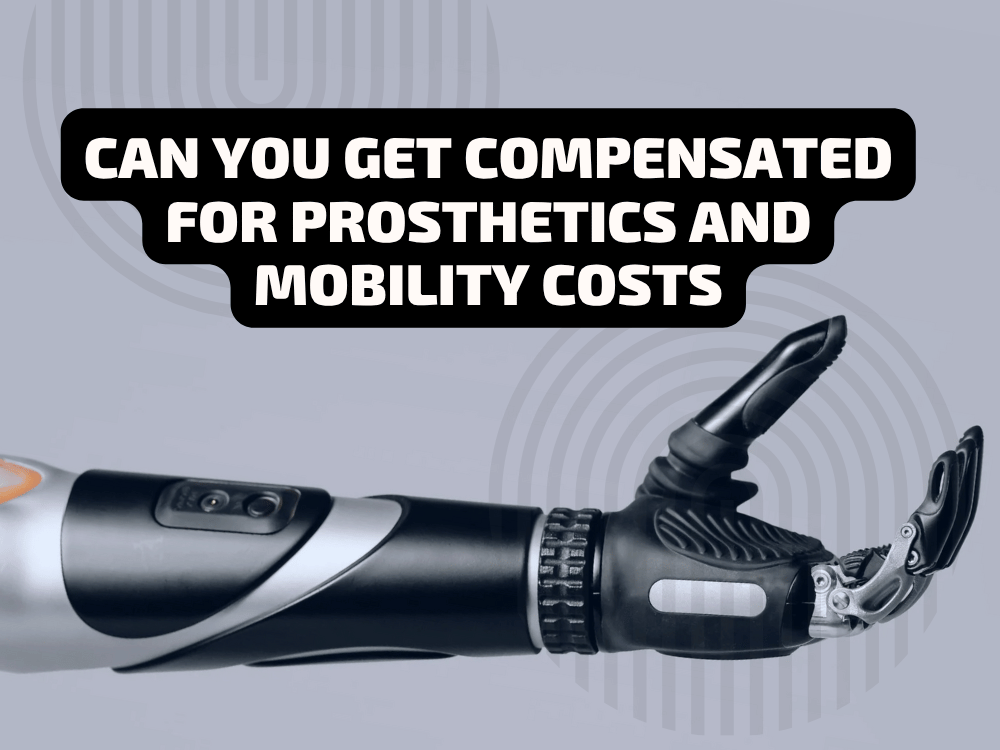Amputation After an Accident: Can You Get Compensated for Prosthetics and Mobility Costs?

Losing a limb is a life-changing event. Whether caused by a car accident, workplace injury, or medical malpractice, an amputation affects nearly every part of a person’s life—from their ability to work and perform daily tasks to their emotional and physical well-being. One of the most pressing concerns for amputees is the cost of recovery—especially when it comes to prosthetics, mobility devices, and home modifications.
If your amputation was caused by someone else’s negligence or a work-related incident, you may be entitled to compensation. But how much, and what exactly does it cover?
The True Cost of Living After an Amputation
Modern prosthetics can dramatically improve independence and quality of life—but they come with a steep price tag. A high-quality prosthetic limb can cost anywhere from $5,000 to $70,000 or more, depending on the type and level of customization. Many prosthetics need to be replaced every 3 to 5 years due to wear or changes in the user’s body.
Additional costs often include:
-
Rehabilitation and physical therapy
-
Occupational therapy for relearning daily tasks
-
Modifications to the home (e.g., ramps, widened doorways, accessible bathrooms)
-
Wheelchairs, crutches, walkers, or motorized scooters
-
Vehicle modifications for driving
These expenses can easily reach hundreds of thousands of dollars over a lifetime—well beyond what most insurance policies will cover.
Compensation After an Amputation Injury
If your amputation was caused by another party’s negligence, you have the legal right to pursue a personal injury claim. Compensation may cover:
-
All medical expenses, including surgeries, hospital stays, and prosthetics
-
Future costs related to prosthetic replacements and upgrades
-
Lost income and loss of future earning capacity
-
Home and vehicle modifications
-
Pain and suffering
-
Emotional distress
-
Loss of enjoyment of life
In workplace injury cases, workers’ compensation may provide partial wage-loss benefits and cover medical bills, but it often doesn’t fully address long-term needs. That’s why many amputees pursue additional claims against third parties (e.g., equipment manufacturers, negligent subcontractors) when possible.
Proving Long-Term Costs
Insurance companies often undervalue the long-term impact of an amputation. Proving the full extent of your needs requires expert support. An experienced catastrophic injury lawyer will work with life care planners, prosthetic experts, and economic analysts to build a comprehensive case for the compensation you deserve.
This includes documenting:
-
Your projected medical and prosthetic needs over your lifetime
-
Job retraining or permanent disability status
-
Mental health impacts, such as depression or PTSD
-
The effect on your ability to participate in everyday life
Get Legal Help After an Amputation
At Pisanchyn Law Firm, we understand the complex legal, financial, and emotional challenges faced by amputation survivors. Our team has successfully handled catastrophic injury cases across Pennsylvania, securing compensation for clients who need lifelong support.
If you or a loved one lost a limb due to someone else’s negligence or a work accident, contact us for a free consultation. We don’t get paid unless we win your case.
